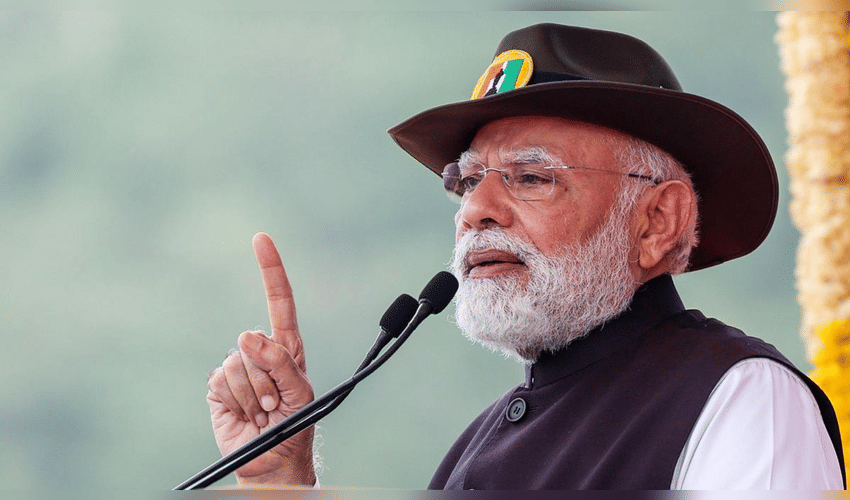News
PM Modi Alleges Nehru Blocked Sardar Patel Vision to Fully Integrate Kashmir into India
Published On Sat, 01 Nov 2025
Fatima Hasan
6 Views

Prime Minister Narendra Modi recently made a significant statement regarding the integration of Kashmir into India, highlighting a pivotal historical difference between two of India’s foremost leaders post-independence. Modi emphasized that Sardar Vallabhbhai Patel, the country’s first Home Minister and a key architect in unifying India’s princely states, had strongly desired to merge the entire region of Kashmir with the Indian Union. However, according to Modi, this vision was hindered by the then Prime Minister Jawaharlal Nehru, who is said to have prevented the complete integration from taking place.
Speaking at the Rashtriya Ekta Diwas celebrations held at the Statue of Unity in Gujarat, Modi underlined Patels extraordinary achievements in consolidating over 550 princely states into India after independence. He portrayed Patel as the Iron Man whose commitment to national unity stood unyielding. Modi criticized Nehru’s decision, stating that Nehru stopped Patel’s plan to bring Kashmir fully under Indian governance, instead allowing the region to have a separate constitution and flag. This division, Modi asserted, triggered decades of conflict and instability in Kashmir, as well as significant security challenges for India.
Modi’s remarks also extended to the fallout of what he termed as “mistakes” in Kashmir policy that led to Pakistan occupying parts of the region and to the rise of terrorism, which has caused bloodshed over many decades. He contrasted Patel’s resolute approach to national sovereignty with the “spineless policies” adopted by successive governments post-Patel’s era. Modi suggested that this lack of resolve contributed to ongoing troubles in Kashmir and other sensitive regions, including issues arising from infiltration and demographic changes. He vowed that the current government is committed to addressing these challenges decisively, marking a new chapter in India’s approach to national security and unity.
This narrative by Modi revives a debate among historians and political observers about the early days of independent India and the contrasting philosophies of Patel and Nehru regarding the integration of Jammu and Kashmir. Patel’s vision was to treat Kashmir like any other princely state and swiftly merge it, whereas Nehru’s administration took a different path, acknowledging Kashmir’s distinct status, which remains a contentious issue to this day.
Modi’s speech, delivered on the 150th birth anniversary of Sardar Patel, serves to reemphasize Patel’s legacy in the Indian unity story and frames the Kashmir issue as a long-standing consequence of decisions taken (or not taken) in the nascent years of the republic. His comments also reflect a strong political message about the continuity and change in India’s policy stance on Kashmir and national sovereignty. This perspective adds a layer of insight for readers and analysts interested in India’s political history and current affairs.
The discussion around Patel’s ambition to fully integrate Kashmir versus Nehru’s caution brings into focus how different leadership styles and decisions can shape a nation’s trajectory. Patel, often regarded as a pragmatist and hardliner, believed in immediate consolidation, while Nehru’s diplomatic and legalistic approach sought a more nuanced solution given Kashmir’s complexity and geopolitical sensitivity. This historical divergence is essential to understand the contemporary Kashmir conflict and India’s ongoing efforts to assert its territorial claims and uphold national unity. Prime Minister Modi’s recent statements reassert the belief that unresolved decisions from India’s early leadership have had enduring effects on Kashmir’s integration and security, and highlight the legacy of Sardar Patel as an emblem of India’s indomitable spirit of unity and sovereignty.
Disclaimer: This image is taken from The Hindu.



